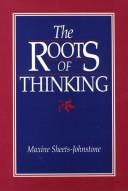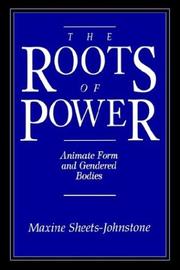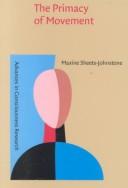| Listing 1 - 10 of 17 | << page >> |
Sort by
|

ISBN: 9780877227694 087722711X 0877227691 Year: 1990 Publisher: Philadelphia (Pa.): Temple university press,
Abstract | Keywords | Export | Availability | Bookmark
 Loading...
Loading...Choose an application
- Reference Manager
- EndNote
- RefWorks (Direct export to RefWorks)
Philosophical anthropology --- Theory of knowledge --- Anthropologie philosophique --- --Philosophical anthropology --- Thought and thinking --- Concepts --- Mind and body --- Human evolution --- Concepts. --- Human evolution. --- Mind and body. --- Philosophical anthropology. --- Thought and thinking.
Book
ISBN: 083875063X Year: 1984 Publisher: Lewisburg, Pa Bucknell University Press
Abstract | Keywords | Export | Availability | Bookmark
 Loading...
Loading...Choose an application
- Reference Manager
- EndNote
- RefWorks (Direct export to RefWorks)
kunstfilosofie --- ballet --- Philosophy and psychology of culture --- Theatrical science --- Dance --- Philosophy.
Book
ISBN: 9781439912614 1439912610 9781439912621 9781439912638 1439912637 1439912629 Year: 2015 Publisher: Philadelphia: Temple university press,
Abstract | Keywords | Export | Availability | Bookmark
 Loading...
Loading...Choose an application
- Reference Manager
- EndNote
- RefWorks (Direct export to RefWorks)
"When The Phenomenology of Dance was first published in 1966, Maxine Sheets-Johnstone asked: "When we look at a dance, what do we see?" Her questions, about the nature of our experience of dance and the nature of dance as a formed and performed art, are still provocative and acutely significant today. Sheets-Johnstone considers dance as an aesthetic mode of expression, and integrates theories of dance into philosophical discussions of the nature of movement. Back in print after nearly 20 years, The Phenomenology of Dance provides an informed approach to teaching dance and to dance education, appreciation, criticism, and choreography. In addition to the foreword by Merce Cunningham from the original edition, and the preface from the second edition, this fiftieth anniversary edition includes an in-depth introduction that critically and constructively addresses present-day scholarship on movement and dance"--
Dance --- Phenomenology. --- Danse --- Phénoménologie --- Philosophy. --- Philosophie --- Phenomenology --- Philosophy --- Phénoménologie --- Dance - Philosophy

ISBN: 0812692586 0812692578 Year: 1994 Publisher: Chicago (Ill.): Open Court
Abstract | Keywords | Export | Availability | Bookmark
 Loading...
Loading...Choose an application
- Reference Manager
- EndNote
- RefWorks (Direct export to RefWorks)
Evolution (Biology) --- Feminist theory. --- Human body (Philosophy). --- Postmodernism. --- Power (Philosophy) --- Sex role. --- Sexism in sociobiology. --- Philosophy. --- Power (Philosophy). --- Feminist theory --- Human body (Philosophy) --- Postmodernism --- Sexism in sociobiology --- Sex role --- Post-modernism --- Postmodernism (Philosophy) --- Arts, Modern --- Avant-garde (Aesthetics) --- Modernism (Art) --- Philosophy, Modern --- Post-postmodernism --- Body, Human (Philosophy) --- Philosophy --- Feminism --- Feminist philosophy --- Feminist sociology --- Theory of feminism --- Authority --- Ethics --- Sociobiology --- Gender role --- Sex (Psychology) --- Sex differences (Psychology) --- Social role --- Gender expression --- Sexism --- Gender roles --- Gendered role --- Gendered roles --- Role, Gender --- Role, Gendered --- Role, Sex --- Roles, Gender --- Roles, Gendered --- Roles, Sex --- Sex roles

ISBN: 9027251347 1556191944 9781556191947 9789027299987 9027299986 9789027251343 1282164023 9786612164026 Year: 1999 Publisher: Amsterdam ; Philadelphia : John Benjamins Pub.,
Abstract | Keywords | Export | Availability | Bookmark
 Loading...
Loading...Choose an application
- Reference Manager
- EndNote
- RefWorks (Direct export to RefWorks)
Through diligent and rigorous attention to both natural history and phenomenological accounts of kinetic phenomena, particularly the phenomenon of self-movement, this richly interdisciplinary book brings to the fore the long-neglected topic of animate form and with it, a long-neglected inquiry into the significance of animation. It addresses methodological and foundational issues at length. In its detailed and extensive examinations and analyses of movement - which range from Aristotle's recognition of motion as the principle of nature to a critique of the common notion of movement as change of position, from critiques of present-day materialists' trivializations of movement as mere output to kinesthetically-tethered accounts of the qualia of movement, from expositions of an evolutionary semantics and of the tactile-kinesthetic body as generative source of corporeal concepts to expositions of thinking in movement and of the pan-human phenomenon of learning to move oneself - this book lays out in ground-breaking ways fundamental epistemological and metaphysical dimensions of animate life. (Series A).
Philosophy and psychology of culture --- Cognitive psychology --- PHILOSOPHY --- Epistemology --- Movement --- Movement (Philosophy) --- Physiological Processes --- Musculoskeletal Physiological Processes --- Musculoskeletal Physiological Phenomena --- Physiological Phenomena --- Phenomena and Processes --- Musculoskeletal and Neural Physiological Phenomena --- Philosophy --- Philosophy & Religion --- Musculoskeletal and Neural Physiological Concepts --- Musculoskeletal and Neural Physiological Phenomenon --- Musculoskeletal and Neural Physiology --- Physiological Concepts --- Physiological Phenomenon --- Physiological Process --- Concept, Physiological --- Concepts, Physiological --- Phenomena, Physiological --- Phenomenas, Physiological --- Phenomenon, Physiological --- Physiological Concept --- Process, Physiological --- Processes, Physiological --- Musculoskeletal Physiologic Process --- Musculoskeletal Physiological Concepts --- Musculoskeletal Physiological Phenomenon --- Physiology, Musculoskeletal --- Musculoskeletal Physiologic Processes --- Musculoskeletal Physiological Process --- Musculoskeletal Physiology --- Concept, Musculoskeletal Physiological --- Concepts, Musculoskeletal Physiological --- Musculoskeletal Physiological Concept --- Phenomena, Musculoskeletal Physiological --- Phenomenon, Musculoskeletal Physiological --- Physiologic Process, Musculoskeletal --- Physiologic Processes, Musculoskeletal --- Process, Musculoskeletal Physiologic --- Process, Musculoskeletal Physiological --- Processes, Musculoskeletal Physiologic --- Processes, Musculoskeletal Physiological --- Musculoskeletal System --- Movements --- Motion --- physiology. --- physiology --- Movement, Psychology of.
Book
ISBN: 9781845401535 1845401530 Year: 2009 Publisher: Charlottesville, Va Imprint Academic
Abstract | Keywords | Export | Availability | Bookmark
 Loading...
Loading...Choose an application
- Reference Manager
- EndNote
- RefWorks (Direct export to RefWorks)
Philosophical anthropology --- Human body (Philosophy) --- Body, Human (Philosophy) --- Philosophy
Book
ISBN: 9789027252180 9789027252197 9789027286772 9027286779 9027252181 902725219X 1283174863 9781283174862 9786613174864 6613174866 Year: 2011 Publisher: Amsterdam ; Philadelphia : John Benjamins Pub. Co.,
Abstract | Keywords | Export | Availability | Bookmark
 Loading...
Loading...Choose an application
- Reference Manager
- EndNote
- RefWorks (Direct export to RefWorks)
This expanded second edition carries forward the initial insights into the biological and existential significances of animation by taking contemporary research findings in cognitive science and philosophy and in neuroscience into critical and constructive account. It first takes affectivity as its focal point, elucidating it within both an enactive and qualitative affective-kinetic dynamic. It follows through with a thoroughgoing interdisciplinary inquiry into movement from three perspectives: mind, brain, and the conceptually reciprocal realities of receptivity and responsiv
Philosophy and psychology of culture --- Cognitive psychology --- Movement (Philosophy) --- Movement, Psychology of --- Philosophy --- Motor psychology --- Motion --- Psychophysiology --- Motion study --- Movement education --- Muscular sense --- Movement, Psychology of.
Book
Year: 2009 Publisher: Exeter : Imprint Academic,
Abstract | Keywords | Export | Availability | Bookmark
 Loading...
Loading...Choose an application
- Reference Manager
- EndNote
- RefWorks (Direct export to RefWorks)
Book
ISBN: 9781845409043 Year: 2016 Publisher: Exeter : Imprint academic,
Abstract | Keywords | Export | Availability | Bookmark
 Loading...
Loading...Choose an application
- Reference Manager
- EndNote
- RefWorks (Direct export to RefWorks)
Book
ISBN: 9789004544512 9004544518 9004544534 9789004544536 Year: 2023 Publisher: Leiden ;Boston Brill
Abstract | Keywords | Export | Availability | Bookmark
 Loading...
Loading...Choose an application
- Reference Manager
- EndNote
- RefWorks (Direct export to RefWorks)
This interdisciplinary book focuses on Charles Darwin’s extensively detailed observations of all forms of animate life across the global world—humans included. These existential realities of Nature are not commonly recognized in today’s world, yet they are all of sizable import in impacting both flora and fauna, thus in human understandings of the nature of the world and the nature of all forms of animate life. Darwin’s descriptively anchored observations furthermore tie in directly with Edmund Husserl’s phenomenological analyses of experience. However different their inquiries and wonder at the world and at human experience, their analyses show how descriptive foundations and a concern with origins are integral to both, and how methodology and a living dynamics are central to a recognition of the complementarity of biological-neurological sciences and phenomenology.
Environmental ethics --- Ethics --- Human beings. --- Human beings --- Human behavior --- Philosophy --- Darwin, Charles, --- Influence.
| Listing 1 - 10 of 17 | << page >> |
Sort by
|

 Search
Search Feedback
Feedback About UniCat
About UniCat  Help
Help News
News